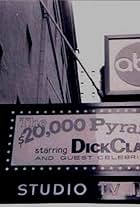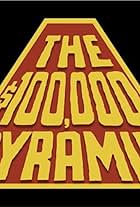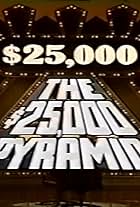Advanced search
- TITLES
- NAMES
- COLLABORATIONS
Search filters
Enter full date
to
or just enter yyyy, or yyyy-mm below
to
to
to
Exclude
Only includes titles with the selected topics
to
In minutes
to
1-50 of 6,656
- Revival of the classic word association game show, where teams attempt to convey a category of words and/or phrases within a time limit.
- Two contestants, each with a celebrity partner, must guess words from their partners' clues; then the roles are reversed. Winners face the pyramid.
- Big budget nighttime syndicated game show where a contestant has a chance to win the $100,000 grand prize. Two teams (each with one Celebrity Guest and one Contestant) play 2 games where though 6 categories, the winner of each game goes to the winners circle for a chance to win the grand prize.
- Lennie Bennett hosts a memory game where a group of eight celebrities each have a punchline, and the contestants have to match the correct response to each question. Aiding the contestants are two star guests.
- CBS Daytime game show where a contestant has a chance to win the $25,000 grand prize. Two teams (each with one Celebrity Guest and one Contestant) play 2 games where though 6 categories, the winner of each game goes to the winners circle for a chance to win the grand prize.
- Chain Reaction was hosted by Bill Cullen in 1980, but went off the air that same year. In 1986, it was revived as "The New Chain Reaction" in 1986 with host Geoff Edwards. It ran until 1991. Two teams of two players (two celebrities and two contestants) competed. Each team was composed of a giver and a guesser. The giver could give the letter in the next word of the chain to either his/her partner or opponent. A correct guess won the appropriate number of points for the round and retained control, while an incorrect guess passes control to the opponents. If you give a letter to your opponent and he/she doesn't get the word, you get to go again. In the first round, the first four words were worth 10 points each, while the last word was worth 20 points. In the second round, words were worth 20-30 points, and the third round 30-50 points. Also in later rounds, a cash word was in the chain worth $500 to the team who guessed it. The first team to reach 300 points won the game and advanced to the bonus round.
- Syndicated versions of the long-running ABC/CBS daytime show.
- A word association game show where contestants had to guess words based on clues.
- Mock trials with bussed in audiences who acted as the jury. However they voted became the verdict so the actors playing lawyershad to work hard to convince them...
- Contestants were briefly shown the answers to questions asked by the host; it was up to the contestants to recall where the answers were concealed.
- 16 contestants attempt to solve riddles and become the "King of the Hill" and win a possible prize of $50,000.
- Contestants competed to correctly answer questions and accumulate money. That money is used to buy boxes and the contestants attempt to match three identical items.
- This weekday morning show deals with the lighter side and the darker side of professional show business. The Game begins with the Host (Larry Blyden) and these 3 stars and/or occasionally 1 star on film on location to play the game in 3 topics. 1. Early Start, 2. Awareness and 3. Success in Fame. 1 star will play for the viewer of an NBC-TV station with a postcard will be reading in the end of the show. Each 1 of the 3 topics will read a question and that'll be answered by 1 of the 3 stars and the remaining 2 stars will be answered to an question correctly wins $25 for the home viewer and the star with the highest dollar amount will win an all expensive-paid trip anywhere around-the-world.
- Match Game-clone, where contestants answer questions and complete fill-in-the-blank riddles.
- 2 Teams played on "Shoot for the Stars" as a word association game. 1 Member of the team select 1 box from 1 to 24. A clue was read (e.g.: "Clever as a Lash") and 1 member had to change the 1st half of the phrase by providing a synonym for the portion (e.g.: "Smart" for "Clever") and his/her member had to change the 2nd & Last half of the phrase (e.g.: "Whip" for "Lash") to complete the new phrase (e.g.: "Smart as a Whip"). Each phrase is worth from $100 to $500 and the teams atlernate their turns up to 1 team win the total of $1500. The Winning Team plays the Bonus Round called "All-Out Shoot-Out". The Champion Team will play for $1000 as they solved the number of clues selected randomly from 5 to 9 clues on the spinning wheel of phrase puzzles after it stopped only once. They'll have 1 minute to change the 2 bookending words in a phrase in the selected number of phrases (e.g.: "7 Phrases") to win the jackpot of $1000. When they completed and the team wins the jackpot and when they didn't completed and the amount of $500 will be added to $1000 after 1 minute is up. Teams must compete until defeated.
- Four contestants attempt to list off items in a specific category and eliminate each other to try for $5,000.
- Two contestants, each with a celebrity partner, must guess words from their partners' clues; then the roles are reversed. Winners face the pyramid. Contestants with the highest scores get a change to play in the $50,000 tournament.
- Bill Cullen hosted this question-and-answer/word game. Two players competed in the main game, selecting letters from a display, trying to claim letters (by answering questions) to build a four-letter word. The first to build an acceptable word, then played the semi-final round. This round featured a game board with six numbers across the top, and 12 other numbers down the sides and across the bottom. The player selected a number from the top, which revealed a dollar amount from $100 to $200, which was the player's starting point. Next, the player picked a number from the sides or the bottom, which revealed a consonant or a vowel, and the player had to come up with a word containing that letter, to bank the starting dollar amount. The player could quit, or risk the money in an effort to double the cash, let's say $200. If the contestant opted to play on, he/she would select another number with the letter underneath revealed. Now, to double the money in the pot, the player had to come up with a word containing BOTH letters revealed for $400. Failing to do so, lost all the money in the bank, and the player was done on the show. The contestant could continue with a third letter, and if successful doubled the pot to $800 by using all three letters in a word. A fourth letter, and a correct word would take the pot to $1600, and so on--until the player went bust, or decided coming up with another word would be foolhardy, and opted to stop. But wait, that wasn't the contestant's money just yet. The player had to face the winner or the next main game, and semi-final game, to play a sudden death game against the other winner, for the combined pots of both players. The survivor pocketed the dough, and met a new challenger starting with a new main game. Despite Don Pardo promising, "You may win over $100,000", most games ended with a player pocketing $2000-$3000, because picking up the $100 grand, would require finding the top $200 starting money, then building a ten-letter word, using the letters revealed. That was HIGHLY unlikely to happen. Still, a nice, not great word game out of New York, from Bob Stewart, which lasted only six months on NBC.
- A game show where a contestant who makes it to the winner's circle, has a chance to win the $100,000 grand prize. Two teams (each with one Celebrity Guest and one Contestant) play 2 games where though 6 categories, the winner of each game goes to the winner's circle for a chance to win the grand prize.
- One team of three celebrities was given a statement that had to be completed. The celebrities gave out an answer. But only one was true. The other team of celebrities (plus the contestant) had to guess which celebrity was right. If the voting was tied, then the contestant's pick was the tiebreaker. The bonus round qualified the contestant to identify a famous person. Doing so won the grand prize.















